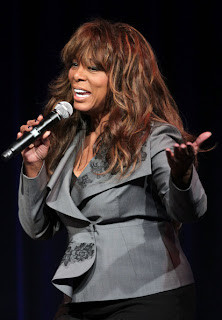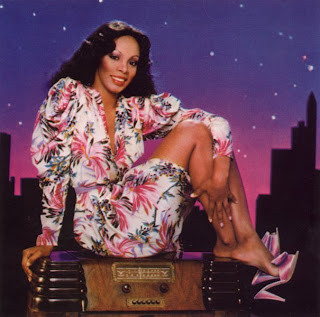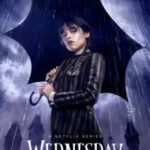Donna Summer. The name itself conjures images of shimmering disco balls, pulsating rhythms, and a voice that could command a dance floor and capture a heart in equal measure. For many, including myself, discovering Donna Summer was a pivotal moment in understanding the power and artistry within pop music. Like Whitney Houston for others, Donna Summer was the voice, the icon, a transcendent figure whose music resonated on a deeply personal level. It wasn’t until recently, during a quiet moment listening to “Last Dance” on my phone, that the full weight of her influence truly hit me. Despite the tinny phone speakers, the sheer brilliance of her performance shone through, undiminished. This wasn’t just a song; it was an experience.
My journey with Donna Summer’s music was somewhat unconventional. Growing up, my musical landscape was dominated by film scores and classical compositions. Pop music felt like a distant shore until my teenage years. Yet, thanks to my sister’s eclectic taste, Donna Summer’s voice was a constant, if somewhat subliminal, presence in my childhood. While I wasn’t buying her records, her music was part of the air I breathed. However, my formal introduction to Donna Summer, and specifically to “Last Dance,” came through the cinematic realm, with her acting debut in the disco-era film Thank God It’s Friday. This movie, a vibrant snapshot of disco culture, cemented “Last Dance” in my mind as more than just a song – it was a narrative, a performance, a moment of pure cinematic and musical synergy.
 Donna Summer in Thank God It's Friday, performing Last Dance
Donna Summer in Thank God It's Friday, performing Last Dance
In Thank God It’s Friday, Summer portrays Nicole Sims, a determined aspiring singer navigating the glittering world of disco. Her ambition is simple: to get a chance to sing at the local disco. The skeptical DJ initially rebuffs her persistent attempts, creating a classic underdog scenario. But Nicole, portrayed with a blend of vulnerability and tenacity by Summer, refuses to be deterred. The narrative arc is predictable yet compelling: the DJ, facing a sudden gap in the evening’s entertainment before the headliner, reluctantly gives Nicole her chance. And the song she chooses? “Last Dance.” What follows is a captivating performance that ignites the entire disco, transforming skepticism into exhilaration. This scene is a perfect encapsulation of the song’s power and Summer’s star quality. Even with its familiar plot beats, Summer’s performance, imbued with a captivating mix of vulnerability, confidence, and raw talent, makes the moment genuinely electrifying. And, of course, the sheer brilliance of “Last Dance” itself elevates the scene to iconic status.
Disco, often caricatured and sometimes dismissed, was a cultural phenomenon brimming with complexities. While it embraced excess and a hedonistic spirit, it also fostered incredible musical innovation and provided a vibrant space for self-expression. Amidst the shimmering lights and rhythmic pulses, artists like Donna Summer emerged, transcending genre limitations and crafting music of lasting artistic merit. “Last Dance,” despite its association with the sometimes-maligned disco era, stands as a testament to this artistic depth.
“Last Dance” initially might sound like quintessential disco – lengthy, beat-driven, perfect for the dance floor. However, beneath the pulsating rhythm lies a sophisticated melodic structure and lyrical depth that sets it apart. The song’s genius lies in its contrasting sections, most notably its slow, emotionally charged introduction. Here, Summer doesn’t embody the stereotypical disco diva; instead, she unveils a vulnerability, a poignant sadness within the lyrics:
Last dance
Last dance for love
Yes, it’s my last chance
For romance tonight
I need you by me
Beside me, to guide me
To hold me, to scold me
‘Cause when I’m bad
I’m so, so bad….
 Donna Summer performing Last Dance, showcasing her vocal power and emotional delivery
Donna Summer performing Last Dance, showcasing her vocal power and emotional delivery
Summer’s delivery in this opening is not about overt seduction; it’s about raw, palpable desperation. There’s a pleading quality to her voice, suggesting a longing that goes beyond mere physical attraction. The “last chance for romance tonight” hints at missed opportunities, a night drawing to a close, and a final plea for connection. It’s not about you specifically, the listener might infer, but the urgency of the moment, the dwindling possibilities as the night ends and the music fades. “Last call,” the lyrics subtly whisper, “this is the last dance.”
Then, the beat drops. The tempo shifts dramatically, and the dance floor ignites. The iconic disco rhythm takes over, propelling the song into its energetic, dance-inducing phase. The lyrics become repetitive, chant-like, urging movement and abandon:
So let’s dance the last dance
Let’s dance the last dance
Let’s dance this last dance tonight
Layered over the driving beat are shimmering synths, sweeping strings, and punchy brass, creating a rich sonic tapestry that embodies the energy of a packed disco. But within this dance frenzy, a brief, yet crucial, B section emerges, offering a moment of introspective vulnerability:
I can’t be sure
That you’re the one for me
But all that I ask
Is that you dance with me….
This short interlude is transformative. It elevates “Last Dance” from a simple invitation to dance to something far more profound. “I’m looking for someone, I’m looking for the one… and I don’t know if you’re the one and for right now, I’m not asking you to be.” This lyric reveals a deeper yearning, a search for connection that transcends the fleeting nature of a dance floor romance. The dance itself becomes the focus, a shared experience in a moment of uncertainty. The omission of this vital section in shorter radio edits is a disservice, stripping the song of its emotional core and nuanced meaning.
The song’s structure is further enriched by a second slow section, mirroring the opening verses. This repetition could be interpreted as a musical representation of the “second dance,” the hoped-for continuation beyond the disco floor, a transition from public performance to private intimacy. As the song surges back into its uptempo rhythm, Summer unleashes a breathtaking high note, a vocal climax of extraordinary power and control. This moment, around the 6:20 mark, is a testament to her unparalleled vocal talent, a glorious peak in a truly exceptional song.
Donna Summer’s voice was nothing short of a phenomenon. Her command over her instrument was absolute, especially during her prime. Even years later, her live performances retained that magic. A testament to her enduring talent is evident in later performances, showcasing that even years after its release, “Last Dance” remained a vocal tour-de-force. And beyond disco anthems, her rendition of The Star-Spangled Banner before a Red Sox game revealed the breadth and depth of her vocal capabilities.
Donna Summer was more than just a disco queen; she was a vocal powerhouse, a captivating performer, and an artist who imbued her music with genuine emotion and artistry. Her passing is a profound loss, leaving a void in the music world. Artists like Donna Summer are rare, their talent transcendent, making us yearn for the possibility of future generations inheriting such extraordinary gifts. “Last Dance,” with its lyrical depth and Summer’s iconic performance, remains a timeless testament to her enduring legacy.

